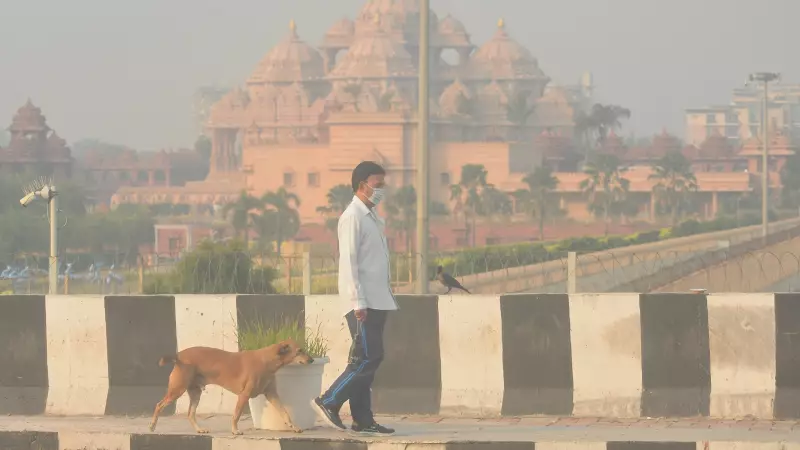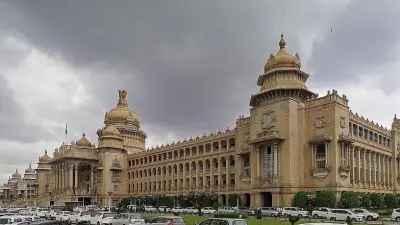
Delhi residents woke up to a thick layer of haze on Tuesday morning as the capital's air quality took a dangerous turn, with several monitoring stations recording 'Poor' to 'Very Poor' conditions and Anand Vihar plunging into the 'Severe' category.
Pollution Hotspots Emerge Across Capital
The data from the Central Pollution Control Board (CPCB) painted a grim picture of Delhi's deteriorating air quality. Anand Vihar emerged as the worst-affected area, registering an alarming Air Quality Index (AQI) of 387, firmly placing it in the 'Severe' category that poses serious health risks to residents.
Other areas didn't fare much better. Wazirpur recorded a 'Very Poor' AQI of 341, while Major Dhyan Chand National Stadium and Pusa areas showed AQI readings of 312 and 308 respectively, all indicating significantly compromised air quality.
Multiple Factors Converge to Choke Delhi
Experts point to a combination of factors contributing to this seasonal deterioration:
- Stubble burning in neighboring states, particularly Punjab and Haryana
- Local emissions from vehicles and industries
- Meteorological conditions including low wind speed and temperature inversion
- Construction dust and other particulate matter
Health Advisory Issued for Vulnerable Groups
Medical professionals have issued warnings, particularly for vulnerable sections of the population. Children, elderly citizens, and people with pre-existing respiratory conditions have been advised to limit outdoor exposure and wear protective masks when venturing outside.
The deteriorating air quality comes as Delhi braces for its annual winter pollution crisis, with conditions expected to worsen in the coming weeks as temperatures drop and wind patterns become less favorable for pollutant dispersion.
What Residents Can Do
- Monitor real-time AQI levels before planning outdoor activities
- Use N95 or equivalent masks when air quality is poor
- Limit morning and evening walks when pollution levels peak
- Use air purifiers indoors, especially in bedrooms
- Keep windows closed during high pollution hours
As Delhi prepares for what experts predict could be a challenging pollution season, authorities are under pressure to implement effective measures to protect public health and improve air quality across the National Capital Region.





